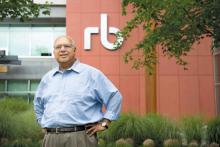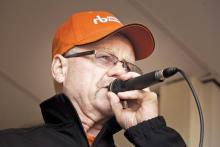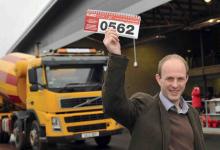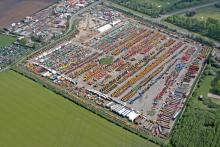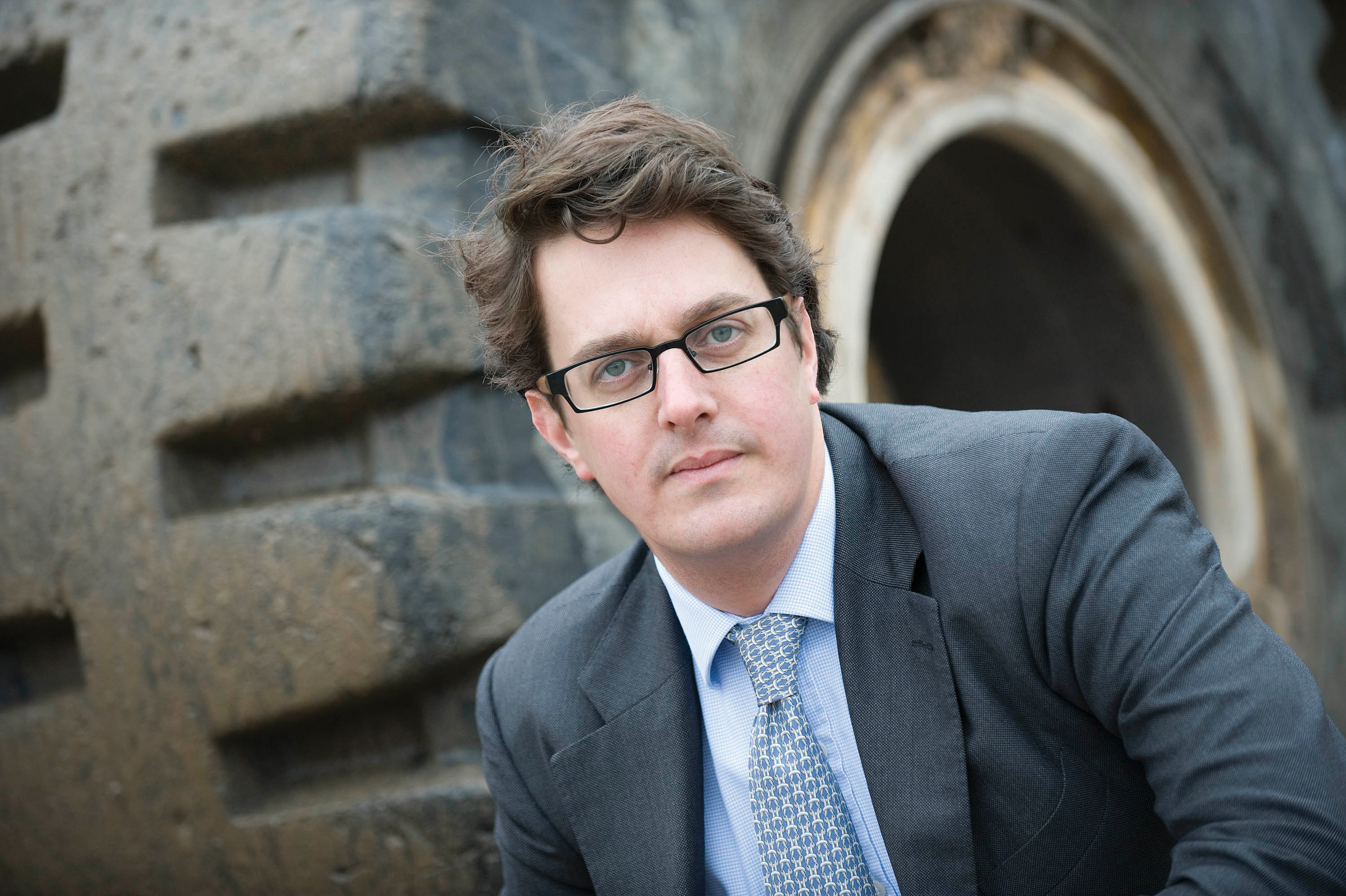
New equipment sales have been hit hard by the recession but used machinery sales are growing. Claire Symes talked to Iron Planet's Tom Cornell about the second hand market.
Many quarry operators and construction companies have had their capital expenditure cut considerably in the last year but most still need to replace ageing machines to maintain productivity. However, funding new equipment is challenging in terms of both initial cost and getting the finance, which is driving more companies to consider used equipment than ever before.
According to Iron Planet managing director Tom Cornell, this step change isn't just being driven by the economic climate but also by developing technology which is making buying second hand equipment less of a risk.
Iron Planet is a relative newcomer to the European used machinery auction market having set up in Ireland in late 2008 but with the backing of a US operation with 10 years of experience. The company is also 35% owned by
Iron Planet's first European auction was in January 2009 and since then there have been monthly auctions. One of the most recent saw €4.1million worth of equipment sold.
"The market is growing for auction companies," he said. "As a company we are gaining market share but more and more companies are considering second hand equipment as a buying option since the recession."
Lower risk
But the company claims that it's the web-based technology and detailed machine condition reports that are also helping to drive the business.
"Ritchies is a physical auction, which includes high costs to ship equipment and no minimum prices and sellers must attend the auction site or commission an agent," explained Cornell. "The Iron Planet approach aims to give control back to the seller and allows them to keep the machine in their yard until the sale is finalised. Our auctions are unreserved but we fix the opening bid at 66-70% of the value of the item, so the seller has some comfort in what the final price may be." Iron Planet has 35 inspectors in Europe, and plans to recruit a further 35 in 2010, who create detailed inspection reports based on a system developed in the US. The inspectors are all contractors to Iron Planet so are independent and the reports they prepare include up to 150 photographs and oil and fluid analysis results.
Iron Planet guarantees the inspection report and the money for the machine is held by the company until the buyer receives the machine and acknowledges that they are happy. The company reports that claims under the guarantee system run at around 3% from each auction.
The construction equipment business is one that Cornell understands well after spending 13 years with
"My father was a soldier and I grew up living abroad and I wanted to work in India and I knew that JCB was strong in the Indian market so seemed like a good prospect to me," he said. "I have had an unbelievable time with the company and did not plan to leave but IronPlanet presented me with another great opportunity - the kind that doesn't come along very often.
"I never had a European remit in my roles with JCB so this was a good challenge for me. The IronPlanet business model is great too." Cornell joined the company in September 2008 and the first European auction was held in January 2009, generating a turnover of €3.5million. The company expected to record a turnover of €32million for the full year in Europe contributing to the global sales of $480million.
Some of the business is through gaining market share but Cornell estimates that the worldwide market for used machinery is US$100billion and Ritchies, as the major player in the sector, still only controls US$3.5billion of this.
Cornell believes that Iron Planets growth is more down to opening up a new way to buy used machinery. In the most recent auction, 132 countries were represented by bidders and an Irish tractor was bought by a customer in Peru. "It opens up opportunities that were not possible before," he said.
"The dealers want to sell new equipment and the second hand market is considered the dirty part of the business. But suddenly it has become the jewel in the crown with customer difficulty to raise finance for new equipment for ongoing projects. For these people a 2006 model is ideal as it still meets their needs but without the high cost.
It is also being boosted by operators offloading unused assets to free up cash." The company claims to have 530,000 buyers in its databases and 70% of these are the end users so selling directly to them ensure the maximum price as it cuts out the middleman.
In addition to the monthly auctions, Iron Planet also offers a daily auction - similar to ebay - where items are listed for two weeks and then brokered between the 13-strong Dublin-based sales team if not sold after that time.
Private dealer auctions are also available and are used by OEMs to sell excess stock to its dealer network, then anything not sold is then opened up to the public. One owner auctions are also sometimes used to liquidate stock or for a retiring owner to sell off an entire fleet.
Expansion
Cornell said he is very optimistic and confident about the future.
"We are trying to promote IronPlanet as more than an auction - we refer to it more as a market place where we introduce buyers to sellers. A lot of our work focuses on promotion of the equipment offered for sale and these are supported by guaranteed inspection reports," he explained.
"How we differ to other conventional auction houses is that we offer an accurate valuation and educate sellers on how to prepare their asset for sale by spending a small amount to maximise the price. We also ensure the start price is keen." In 2010 the company intends to be 'focused vertically' on expansion, so rather than concentrating on general construction equipment, Cornell wants to target the mining, quarrying and demolition equipment sectors. "The business model is ideal for this large sized equipment and the inspection report is key to this," he said.

